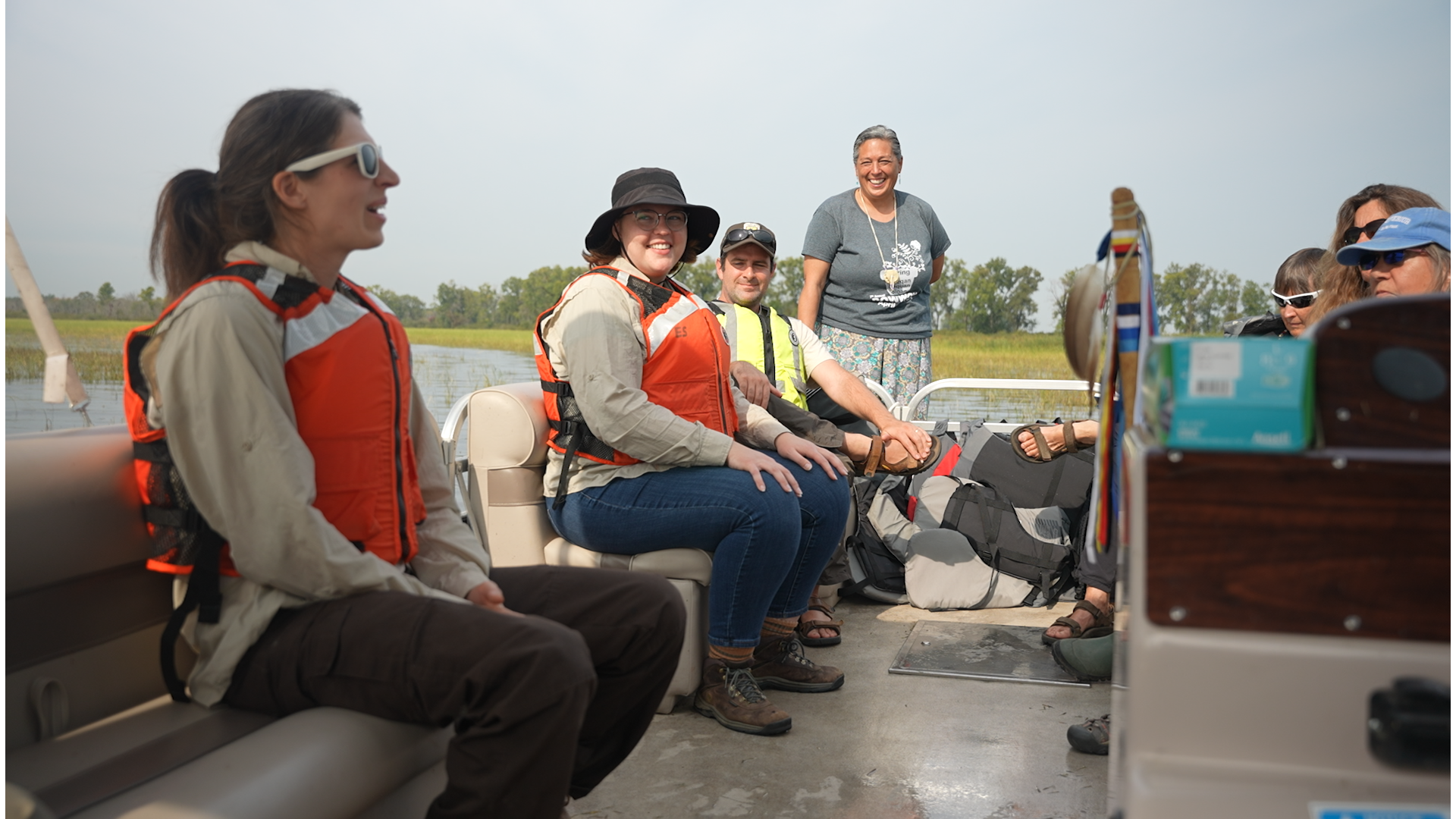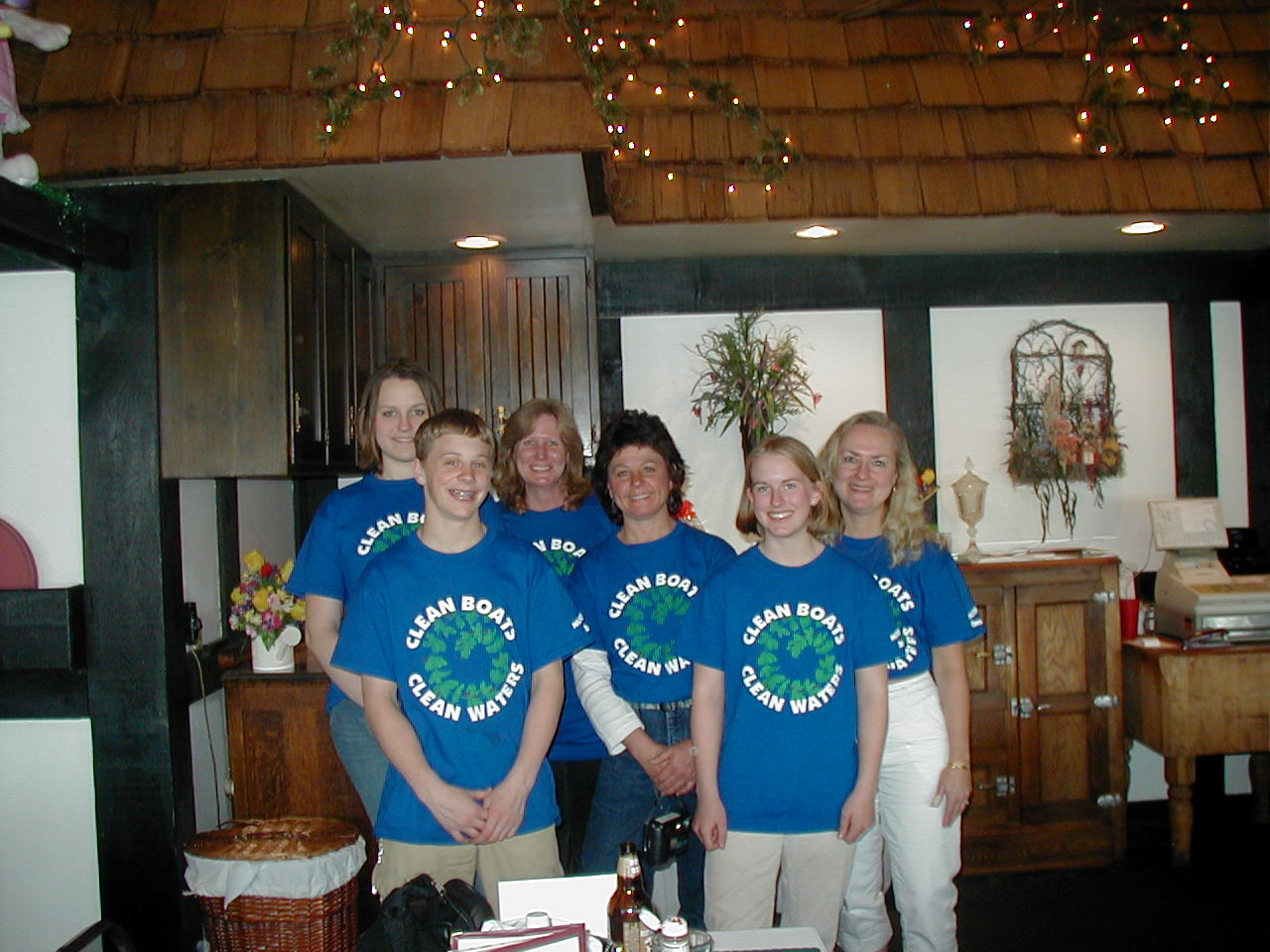The University of Wisconsin’s Aquatic Sciences Center (ASC) has turned to extensive experience and expertise in naming Jennifer Hauxwell as the organization’s new assistant director for research and student engagement for the UW Sea Grant Institute and the UW Institute for Water Resources (WRI). She officially begins her duties on November 3, 2014.
Hauxwell has spent the last six years directing the Wisconsin Department of Natural Resources Fisheries and Aquatic Sciences Research program, leading a team of researchers in a mission that parallels and shares many of the same issues and priorities as Wisconsin Sea Grant’s research portfolio. She’s also quite familiar with the program’s overall strategic priorities and organizational structure, having been a member of Wisconsin Sea Grant’s Advisory Council since 2012.
“Jennifer brings a wide range of experience to our program and many exciting new ideas to help move us forward on multiple fronts,” said Wisconsin Sea Grant director Jim Hurley. “We’re all extremely excited to add her to our team.”
Hauxwell, who holds a PhD in aquatic ecology from Boston University’s Marine Program at the Woods Hole Marine Biological Laboratory, has a long history with the Great Lakes, dating back to a childhood spent on the shores of Lake Michigan, and Wisconsin’s inland waters, after conducting nutrient and aquatic invasive species research here since 2001. She also knows the ocean coasts, having conducted nutrient-related research in New England estuaries (1994-2000), Florida springs and estuaries (2000-2001), and having worked with Florida Sea Grant in the early 2000s on a set of outreach materials related to the effects of nutrient loading on Florida’s coastal waters. Given that the effects of nutrient loading—specifically phosphorus and nitrogen–are one of the biggest issues threatening the quality of Wisconsin’s coastal waters, Hauxwell’s experience is especially apropos.
“I’m looking forward to joining ASC, working as a team and in partnership with others toward our mission to support multidisciplinary research, education and outreach for the protection and sustainable use of Wisconsin’s water resources, and to increasingly engage students in this process,” said Hauxwell. “Combining the ASC’s strengths in the areas of scientific excellence and communications with an increased focus on making that science actionable for society will mean better-informed decisions for our and future generations.”
In addition to managing Wisconsin Sea Grant’s extensive research portfolio, Hauxwell will also be charged with tackling one of the organization’s most important new priorities: Finding ways to engage and leverage the nearly 200 undergraduate and graduate students Wisconsin Sea Grant and WRI supports each year as part of their research and outreach activities. One of the top items on Hurley’s agenda is to make sure these students, many of whom will now be known as Sea Grant Fellows, get the full experience of being part of Sea Grant, including professional development and opportunities to interface with each other and with experts in a wide range of disciplines.
Expect to hear the concepts of communication and actionable science frequently from Hauxwell. Both have long been critical to her approach to research.
“It’s not just about learning new facts, but communicating them,” said Hauxwell in a 2012 issue of the Aquatic Sciences Chronicle, ASC’s quarterly newsletter. “We’re far more productive as a society if people have access to relevant information and if people are debating what to do with the facts, rather than debating the facts. It starts with quality science and outreach, and the support Sea Grant gives is key to that.”
Hauxwell has pledged to continue several Wisconsin Sea Grant initiatives, including strong investment in social-science and climate-related research. She also plans to tie future WRI research to priorities outlined in the Wisconsin Groundwater Coordinating Council’s most recent report to the state Legislature—specifically, an emphasis on nitrate and other contaminants, viruses, groundwater quality and quantity, and monitoring, as well as understanding emerging challenges for protecting Wisconsin’s ground- and surface water resources.
Partnerships will also be key for Hauxwell.
“We know we’re dealing with increasingly limited resources, which is why it’s important to find partners at the local, state and national levels who can help us achieve our shared goals.”
Hauxwell lives in Evansville, with her husband Dave and their three kids, Miles (12), Ellen (9) and Kiersten (7) . The family raises poultry, and Jennifer enjoys a long list of outdoor activities– biking, jogging, swimming, hiking, and archery and turkey hunting, a pair of recent new pursuits.





